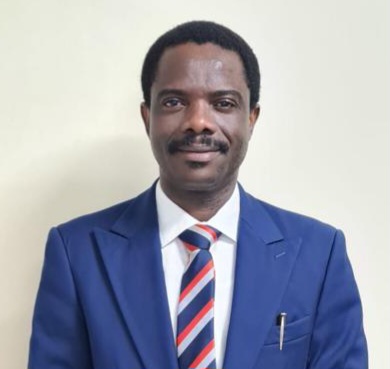Between 2020 and 2023, the Nigerian Maritime Administration and Safety Agency (NIMASA) has brought the country to speed in the maritime world with ratification of 6 conventions. Under the Dr Bashir Yusuf Jamoh OFR, led Management NIMASA in the last three years have doubled Nigeria’s momentum for a viable blue economy that seeks to harness maritime potentials for economic sustainability and growth.
While Jamoh’s implementation drive has earned Nigeria some accolades, it is noteworthy that a lot couldn’t have been achieved without reliable legal backing either as legislations or international conventions which Nigeria acceded to. Not less than 6 International maritime conventions have been ratified by Nigeria for proper governance of the country’s maritime space.
These ratified conventions spell out proper mode of governance for various areas such as standards of training ,certification and watch keeping for the fishing sector, pollution management and carriage of passenger luggage by sea.
Nigeria has ratified Hong Kong International Convention for the Safe and Environmentally Sound Recycling of Ships 2009; International Convention on Standard of Training, Certification and Watch-keeping for Fishing Vessel Personnel (STCW –F) 1995;Protocol Relating to Intervention on the High Seas in Cases of OilPollution Casualties (Intervention Protocol)1973; Protocol on Limitation of Liability for Maritime Claims (LLMC)1996; Protocol to the 1974 Athens Convention relating to the Carriage of Passengers and their Luggage by Sea 2002; and Protocol of 2005 to the 1988 Protocol for the Suppression of Unlawful Act against the Safety of Fixed Platforms located on the Continental Shelf (SUA PROT 2005)
Within the three year period, the agency also concluded the review of 49 Regulations made pursuant to the Merchant Shipping Act, 2007. Laws in this category specifically sought to protect interests of indigenous professionals and investors in the maritime industry with first choice opportunity preferences.
It also bridged operational gaps between the maritime sector and other area while fostering inter agency collaboration with other federal government owned organisations
Jamoh and his team have succeeded in Executing some Memorandum of Understanding between the Agency andNigerian Meteorological Agency (NiMet), Nigerian Institute ofTransport Technology (NITT) and the National Oil Spill Detection and Response Agency (NOSDRA) amongstothers.
Other MoUs reached include Memorandum of Understanding (MoUs) on the recognition ofCertificate of Competency (CoC) and Training of Seafarers between Nigeria and Sixteen countries.This is aimed at expanding opportunities for international level job placement for holders of Nigeria CoC while also causing Nigerian skilled maritime manpower deployment in addressing global challenge of declined number of seafarers.
NIMASA has achieved the automation of the registration process of Shipping Company/Agents resulting in Certificates being embedded with QR Codes for authentication.This has successfully eliminated the back and forth incidents of alleged fake certificates in the past and has enthroned greater level of integrity and accountability in the certification process.
The agency’s deliberate drive to educate and strengthen judicial officers on how best to handle admiralty cases was not left behind in the period under review.NIMASA successfully hosted the Annual Nigerian Admiralty Law Colloquium in collaboration with the Nigeria Institute of Advanced Legal Studies (NIALS) and the National Judicial Institute (NJI) for the years 2021, 2022 and 2023.
On anti piracy, NIMASA championed implementation of the Suppression of Piracy and Maritime Offences (SPOMO) Act, 2019 which has enhanced safer and secured trading routes through the Gulf of Guinea region and ensured proper prosecution of a sizeable number of cases such as FGN v BINAEBI JOHNSON & 8 Ors and FGN v FRANK ABAKA & 9 Ors.
This landmark SPOMO Act by Nigeria is presently being studied by other maritime administrations owing to its huge success in fighting piracy with a rich legal framework that is marked with successes since implementation began.
Beyond the shores of Nigeria, notable global maritime personalities like Kitack Lim, the Secretary of International Maritime Organisation (IMO) and Dr. Paul Adalikwu, Secretary General of Maritime Organisation of West and Central Africa (MOWCA) have recommended the SPOMO Act model to other African countries.
All these achievements under the leadership of Dr Jamoh and his team shows an Agency focused on the use of the instrumentality of the Law to enhance the values Nigerian maritime industry adds to the Nation’s economy.


